Chaves: Second week of Vuelta a Espana a voyage into unknown
Orica-Scott rider cautiously upbeat ahead of tougher tests to come
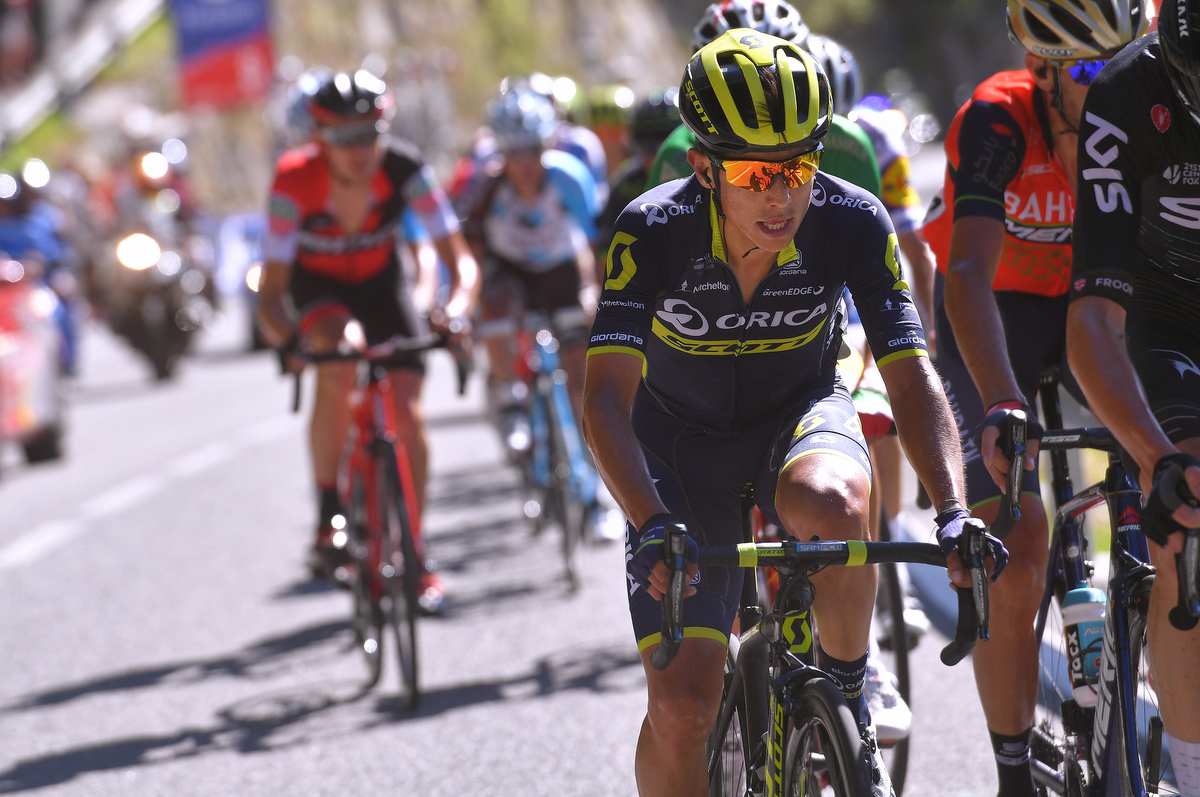
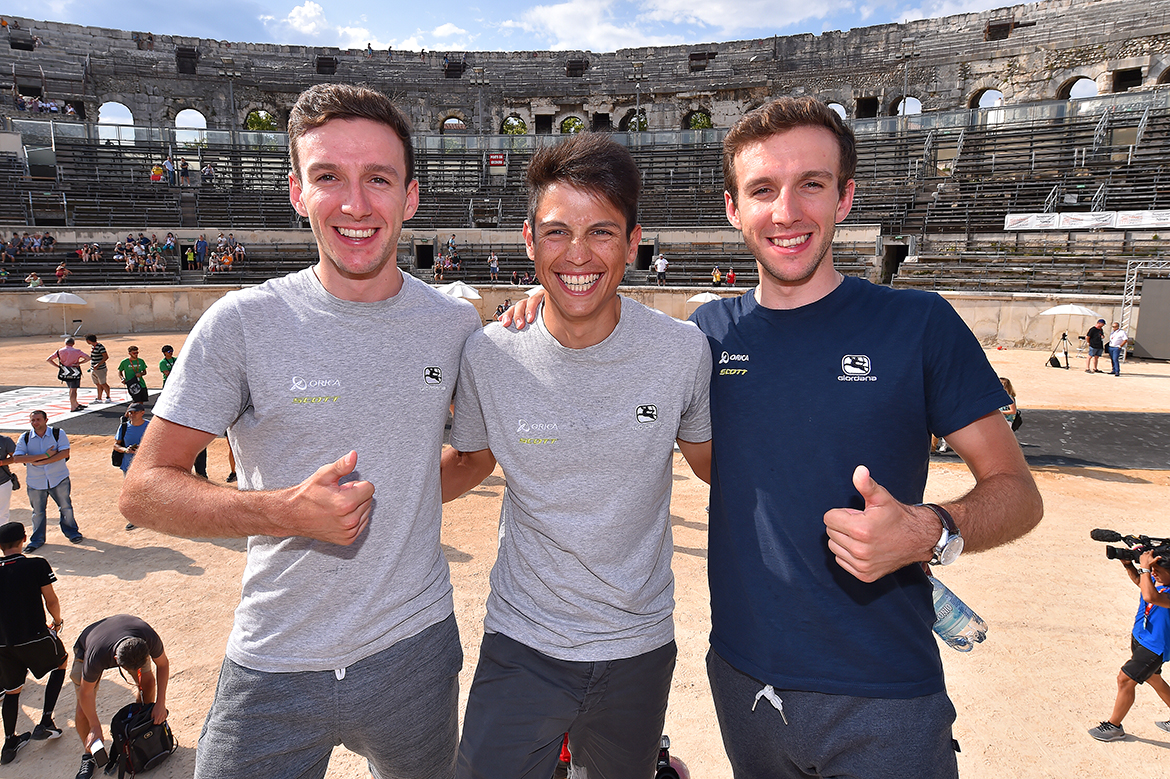
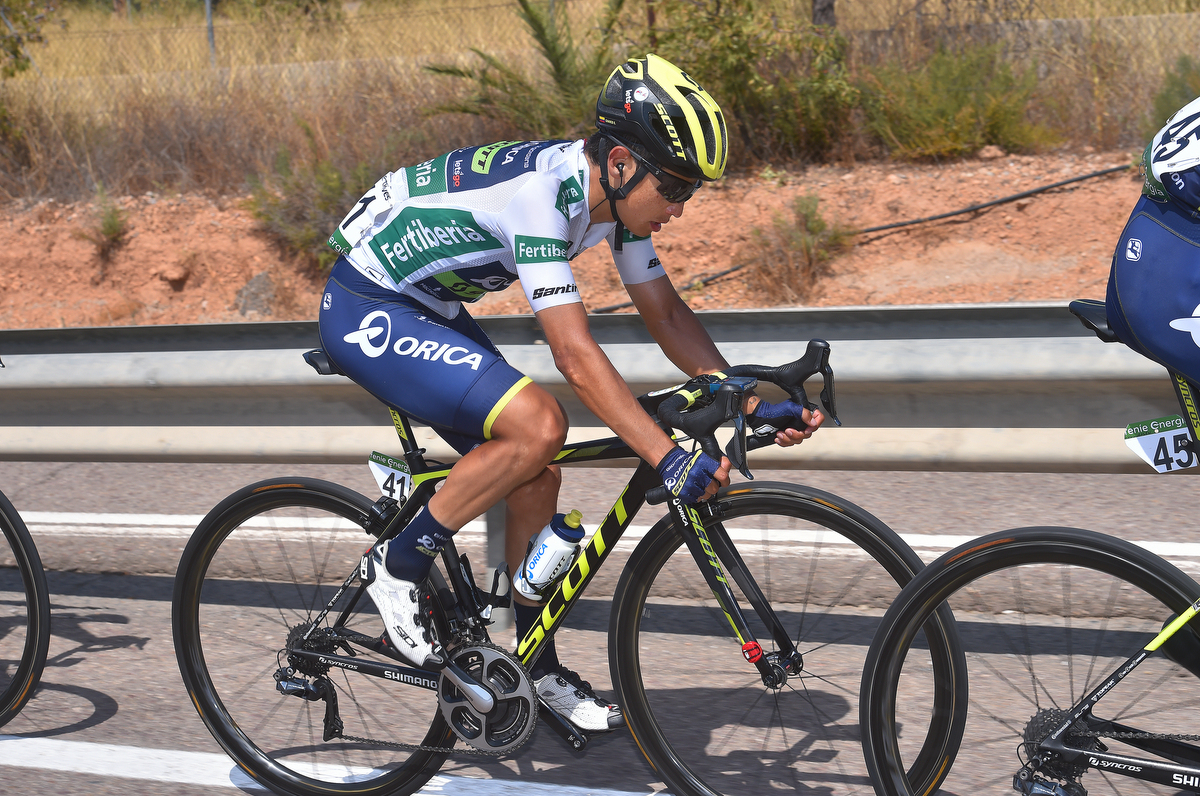
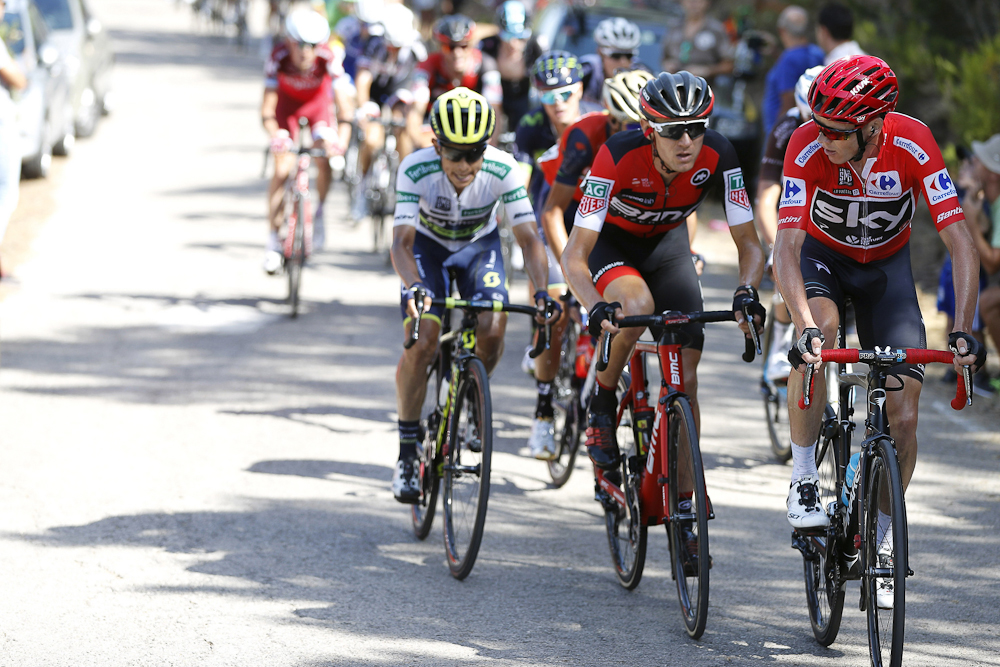
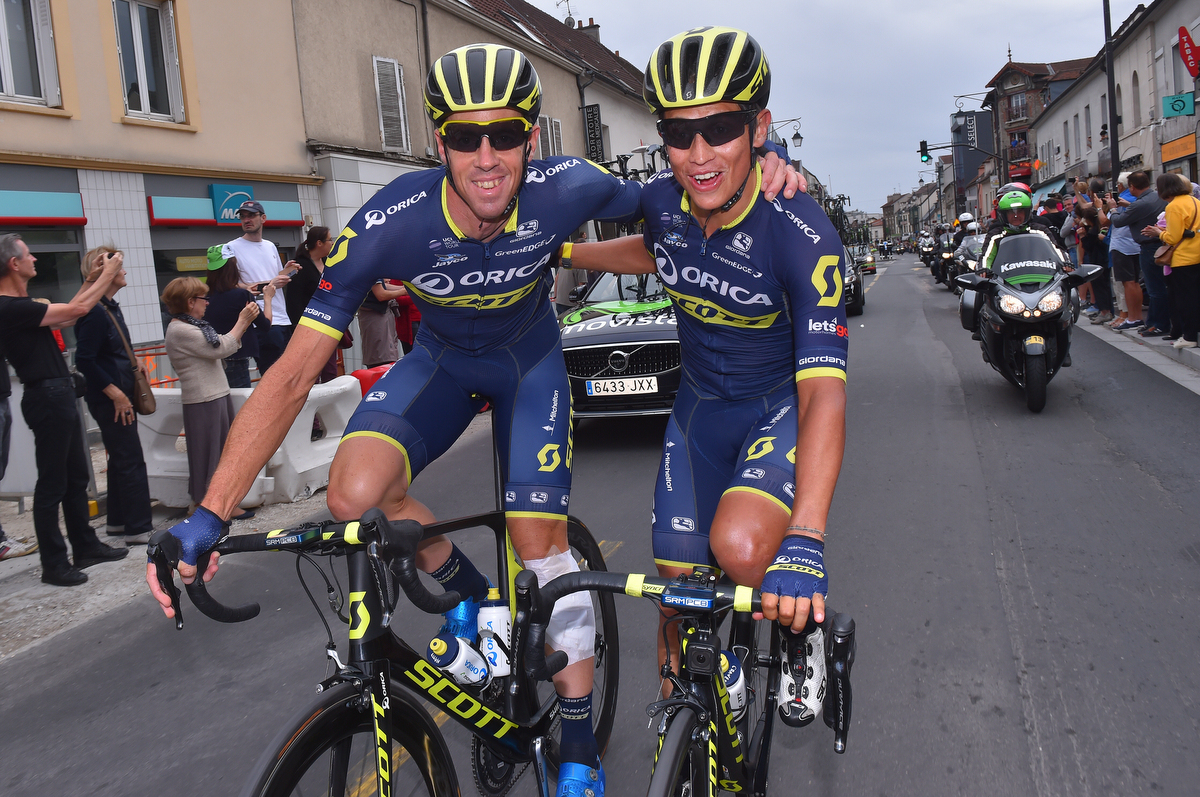
After a solid first week in which Esteban Chaves (Orica-Scott) remains Chris Froome's closest pursuer at the Vuelta a España, the Colombian says that even if the hardest part is still to come, this has been a frenetic opening to cycling's third Grand Tour.
What is to come represents something of a voyage in the dark for Chaves, given that this is the first time he is combining the Tour and the Vuelta back-to-back. And as he says, “the second, and above all, the third week are going to be a new experience for me in terms of GT racing.
"It's been a much harder Vuelta first week in terms of kilometres we've raced. The stages used to be shorter, and this time quite often they've been more than 200 kilometres long and with around ten or more kilometres preceding that in the neutralized zone as well," Chaves said.
“That all counts, and so do the usual first-week nerves, they use up your energy. Everybody wants to be ahead, the GC is beginning to shape itself already, and I'm very satisfied with the team, too. Even if we're mostly a young squad, all under 30, bar one, we're working very well, and Neil [Stephens] is guiding us well.”
Heading into the second week, the team still has two riders in the top 10 with Chaves, second at 36 seconds, and Adam Yates in ninth overall at 1:55. The team brought all three of their general classification riders with them, and Chaves explained that there is more to it than just targeting a strong result at the Vuelta.
"We've got two cards to play in the overall and we're moving into a very different phase of the race," said Chaves. "So now we've got to look forwards but also look back, too, analyse what we did right and wrong in the previous week, because this race isn't just about the Vuelta 2017, it's about using it to improve in every race we do in general."
Chaves chuckled drily when asked what his strategy was concerning race leader Chris Froome (Team Sky) and if he was beatable. "He's human like all of us, so are the team. He's sure to have a bad day, and we'll all wait for that to happen, but we have to wait for that day to arrive first," Chaves argued.
Get The Leadout Newsletter
The latest race content, interviews, features, reviews and expert buying guides, direct to your inbox!
"The climbs so far, have been 12, 15 minutes long. But now the ones coming up are 35, 40 minutes long, and that's a very different kind of mountain," he pointed out. "So let's see how he, his team, and our team all react. For many of us, this is the first time we've done the Tour followed by the Vuelta, and we don't know how we'll react, either.
"On paper, these climbs that are coming up are the ones that suit me the best, but that's on paper. I don't know how my body will react in a second week and above all in a third week of a Grand Tour when I've just done the Tour. For Simon Yates, this combination of Tour-Vuelta is a first too, and it's the first time Adam Yates, who did the Giro, has combined that with the Vuelta and done two Grand Tours in one season as well."
The past, therefore, is as big a factor in Chaves' calculations re his possible performance in Spain - and, as he points out, it will be the same for Yates twins - as is the future challenges in the Vuelta.
"That's why we're so uncertain about what'll happen going forward," he concluded. "We've got a very good team here, we're going well on GC. But we have to keep our feet on the ground and try to be sure we can hang on to what we've got before pushing for something more."
Alasdair Fotheringham has been reporting on cycling since 1991. He has covered every Tour de France since 1992 bar one, as well as numerous other bike races of all shapes and sizes, ranging from the Olympic Games in 2008 to the now sadly defunct Subida a Urkiola hill climb in Spain. As well as working for Cyclingnews, he has also written for The Independent, The Guardian, ProCycling, The Express and Reuters.
